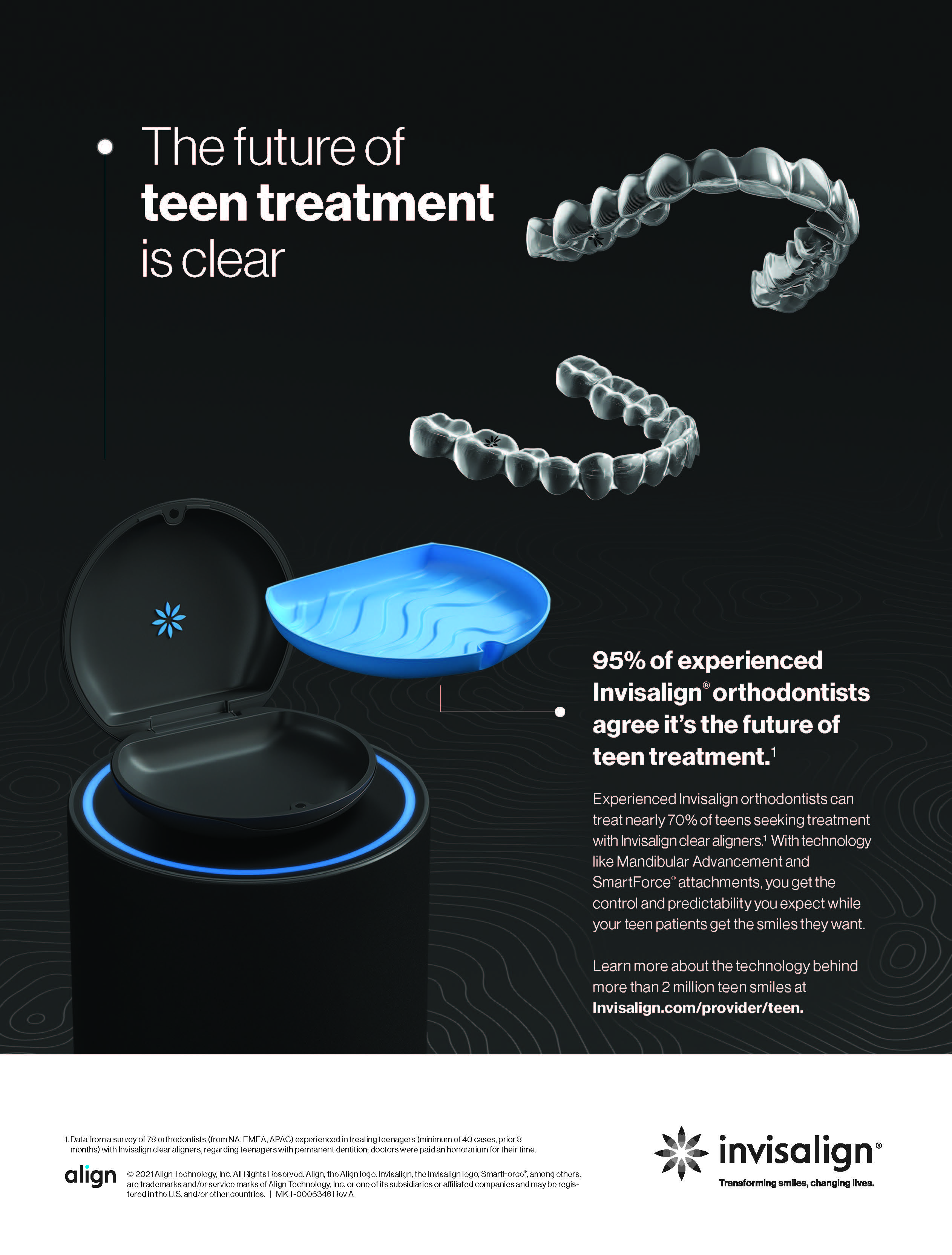During his acceptance speech at the 2019 Tony Awards, American actor and choreographer André de Shields said, “Slowly is the fastest way to get where you want to be.” I wish I had heeded his advice early in my career. Two months after graduating from residency, and only 27 years old, I was hired by a large regional dental corporation to run its only orthodontic clinic. I was given a huge per diem salary and stepped into an already busy office. At the time, I reveled in my responsibilities and the pace of the job.
I had never intended to work for a dental corporation; in fact, I was close to joining an orthodontist in private practice, but I overnegotiated the terms of the contract and lost the opportunity at the last moment (in an early example of my inflated sense of self). I ended up staying with the corporation for seven years, eventually working there and in my own practice at the same time. In hindsight, I would have been better off working as an associate for an orthodontist, because I still had so much to learn about orthodontics.
At the corporation, without a senior orthodontist as my mentor, I learned primarily about business. I measured my success based on how much money I generated, because that was how my regional managers evaluated me. I became hyperfocused on my monthly collection and EBITA goals. I pressured consults into starting immediately and planned treatment on the fly. I was moving too fast for my limited skill set, and I was unaware of all the clinical mistakes I was making in my haste. Worst of all, I carried all these bad habits with me into my private practice and had to spend years unlearning them.
Similar articles from the archive:
- THE EDITOR'S CORNER Advice for the Graduate June 2011
- THE EDITOR'S CORNER On Starting a New Practice March 2018
- THE EDITOR'S CORNER On Hiring an Associate February 2018
My professional arc from money-focused to quality-focused helped me later in my career, though, when it became time to hire young associates for my private practice. I understood that I had a great responsibility as their new teacher. First and foremost, I avoided giving them pressure talks about case-start and collection goals. Within the constraints of my practice, I allowed them to work slowly and learn properly, and they, in turn, helped me to develop a better working pace and become a better clinical orthodontist.
This topic of speed came up during my recent JCO webinar, “Ask Dr. Neal Kravitz Anything” (https://www.jco-online.com/continuing-education/webinars). A young orthodontist asked me how he could grow his new practice faster, and I couldn’t help but reflect on the frantic pace I had kept during my early career. I deflected the question somewhat by responding that I wish I had focused more on the quality of patient care instead of on making money. If I had moved a little slower, I would have given myself time to improve my diagnoses and technique. I assured this young orthodontist that practice growth will come in time.
De Shields won his first Tony Award at the remarkable age of 73 for his role in the Broadway musical Hadestown. My advice to young orthodontists is the same as his: move slowly. If you are given options for employment, consider working for an orthodontist in private practice rather than for a dental corporation. You may make less, but you will learn so much more. When you start your own practice, grow it correctly by focusing on ETHICS, not EBITA. If I hadn’t hit the ground running, perhaps I wouldn’t have tripped up so many times.
Good luck to all the new orthodontic graduates.
NDK



COMMENTS
.